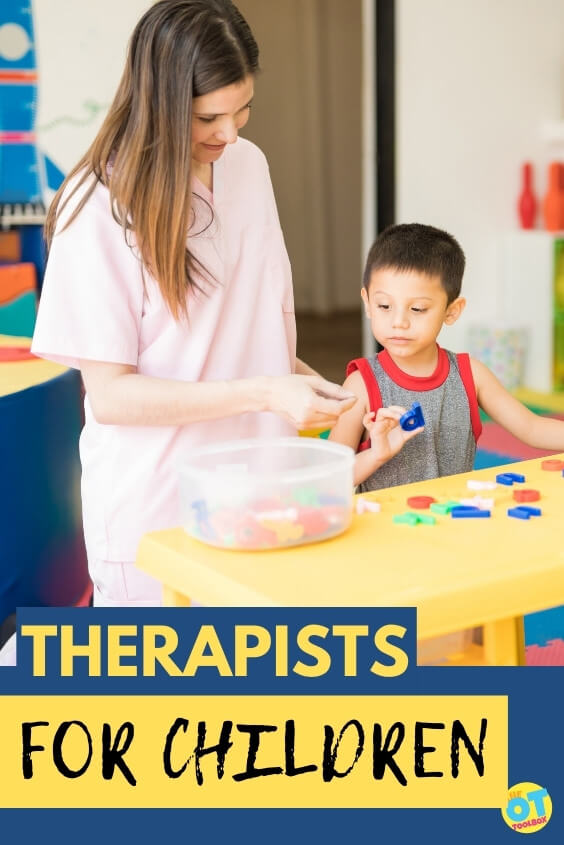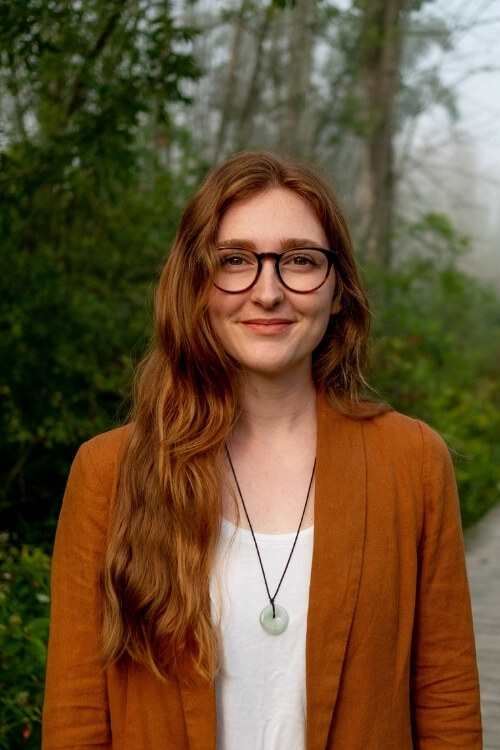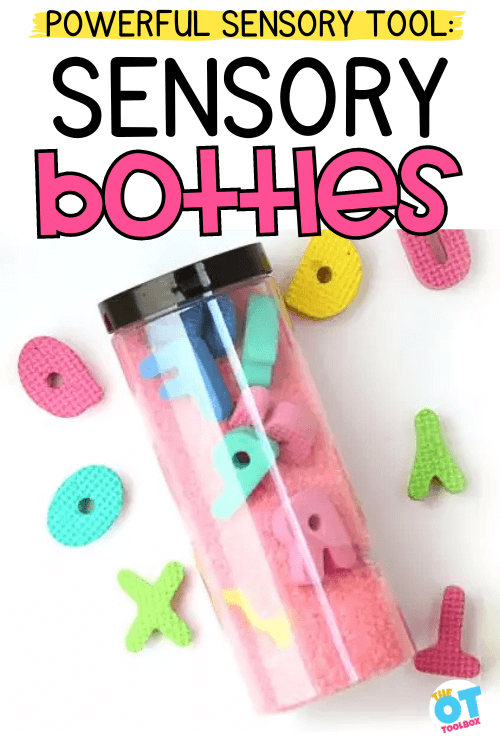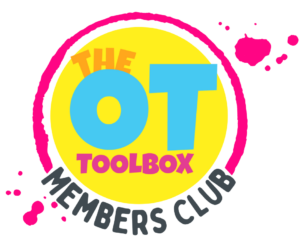There are many types of child therapy healthcare professionals that work with children, and so many of them are considered “therapists”. What is the difference between a physical therapist, an occupational therapist, and a speech therapist? Or how about a child therapist, a psychologist, a psychiatrist? We will break down the roles of these professions, why they may be recommended for your child, and discuss the main differences between them that make them unique.

Types of Child Therapy
Before we get to talking about these fantastic professions and the different types of child therapy that helps kids develop into the best version of themselves, let’s talk about stigma. No type of therapy, whether it be for physical or mental needs, should come with feelings of guilt or embarrassment. Therapy should be celebrated! You are improving as an individual – whoo!
We hope that parents and caregivers of children receiving therapy understand this, and are able to let go of any negative connotations that used to come along with receiving services.
PHYSICAL, OCCUPATIONAL, AND SPEECH THERAPISTS
You are most likely to come across these three therapists when your child has a
developmental disability, a physical injury or deficit, or a diagnosis that makes it harder for them to develop skills independently.
Often, the OT, PT, or ST professionals work as a team to improve the independence of the children they work with.
Does my child need a physical therapist?
A physical therapist works with the physical body. They work to make sure that all the muscles, tendons, joints, and moving parts of the body are working properly.
Kids that have muscle weakness, joint stiffness or contractures, or an irregular walking pattern may be recommended physical therapy. Interested in hearing more? Head over to here for some great information.
Does my child need an Occupational therapist?
An occupational therapist helps people function through their occupations (activities). This article dives deeper into pediatric occupational therapy, but here is the just of it: if your child needs help with their daily activities, like dressing, eating, playing, or writing, an occupational therapist can work to improve their functional abilities.
While physical therapists work with the physical body only, occupational therapists work with physical as well as cognitive, social, and
emotional needs.
Does my child need a speech therapist?
A speech therapist, or a speech-language pathologist (SLP), is pretty much what it
sounds like – they help children with their communication abilities. More than that, however, is the way that they work with cognition, as all speech and language skills come from the cognitive abilities of the brain.
A child may be referred to a speech therapist if they have a physical speech impairment (originating in the mouth, tongue, face, jaw, etc.) or a cognitive delay or disability that impairs their ability to speak, to understand spoken language, or any other kind of communication barrier. Children with slurred speech or stutters often receive speech therapy. Learn more about speech therapy here.
MENTAL HEALTH THERAPISTS
Mental health therapists usually hold a master’s degree from a field like social work, marriage and family therapy, or counseling. Therapists can diagnose and treat mental, emotional, and behavioral issues in a counseling, play-based, or group therapy format.
Does my child need a child therapist?
A child may be referred to a child therapist because of their health history, for example, experiences of trauma, divorcing parents, losses of loved ones, etc.
Children with big feelings like anxiety, depression, or overwhelming fear may be recommended therapy. Therapists are not able to prescribe medication but may be the right choice for non-pharmaceutical interventions for a child’s mental
well-being. Other reasons for pursuing a mental health therapist may include:
- Big personality changes
- Social or emotional difficulties such as having trouble making and keeping friends
- Challenges that get worse with age rather than better, including participating in activities, dropping out of school or school activities, and hobbies
- Difficult situations such as bullying, divorce, moving, health problems, death of a family member or friend, etc.
- Consistent behavior or mood changes
- Anxiety, attention issues, worries, depression, etc.
CHILD PSYCHOLOGISTS & PSYCHIATRISTS
Child psychologists hold doctorate degrees and may work clinically, with patients, or complete research for the field. A clinical child psychologist is able to provide counseling and traditional methods of therapy for children and their families much like a therapist, but can also provide more thorough testing and diagnosis for children.
Does my child need to see a Child Psychologist?
A child psychologist may be the right route for you if your child needs accommodations in school for a psychological or neurological issue.
These professionals are not medical doctors, so they cannot prescribe medication.
Psychiatrists, on the other hand, are able to prescribe medication for mental health.
Does my child need to see a psychatrist?
Child psychiatrists may treat a patient for traditional therapy services, but most often they only see their patients occasionally to manage medications. A child may be referred to a psychiatrist if non-pharmaceutical methods of therapy are not providing the results that are necessary for their participation in activities.
The Center for Mental Wellness offers great information on the specific types of treatment therapies that a child psychologist may offer. If you are looking for more information on the differences in mental health providers for children, this webpage is a great resource!
While this is not an exhaustive list of therapists and their abilities, we hope to have provided you with some new information on these wonderful professions.
Remember: therapy is not always necessary but often life-changing, mental health is just as important as physical health, and all of the professionals on your child’s health care team are there for you and your family.

Sydney Thorson, OTR/L, is a new occupational therapist working in school-based therapy. Her
background is in Human Development and Family Studies, and she is passionate about
providing individualized and meaningful treatment for each child and their family. Sydney is also
a children’s author and illustrator and is always working on new and exciting projects.


